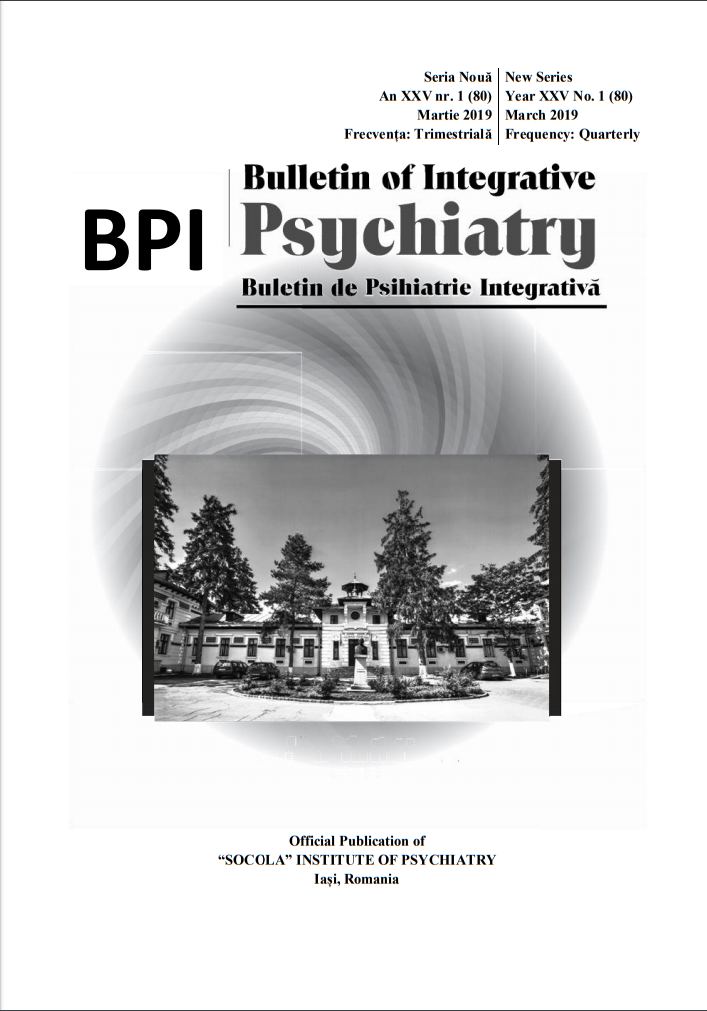Modifications of intelligence quotient during pre and post-psychotic period in men with
schizophrenia
Modifications of intelligence quotient during pre and post-psychotic period in men with
schizophrenia
Author(s): Valentin Oprea, Ecaterina OjogSubject(s): Essay|Book Review |Scientific Life, Health and medicine and law
Published by: Editura Sedcom Libris Iasi
Keywords: Schizophrenia; intellect; intelligence; IQ; dementia;
Summary/Abstract: Background: Many studies tried to find a connection between schizophrenia and intelligence; it is a vastly stigmatized chronic disease did not raise that type of questions. Either there a cognitive decline after the onset of the pathology or the changes in cognition that accompany the disease prevents the individual from manifesting one's intelligence. Even if there are certain modifications in the measured intellect, it does not necessarily mean that schizophrenia is a disease that leads to inevitable dementia. It is not clear whether that decline is due to the pathological process of schizophrenia or an existent low premorbid IQ. Materials and methods: We selected ten patients that satisfied the inclusion criteria. All of the patients were hospitalized in the IMSP Clinical Psychiatric Hospital in the men acute ward in the period between 10.11.2016 – 01.06.2017. The patients were tested three times during their hospitalization: 1-3 day, 10-13 day and 21-30 day. Patients were asked to solve Raven's Colored Progressive Matrices. After which the PANSS scale was applied for grading the positive symptoms during the psychotic and post-psychotic stages. Conclusions: We concluded that people with schizophrenia, the mental activity, practical actions are preserved, the memory and attention are not affected; instead the capacity to formulate own correct conclusions based on a personals analysis is compromised. In the acute psychotic phase, because of the thought chaos, mentism, the slowing of the ideational process. Suffers the general capacity of manifesting an adequate amount of intelligence, but there is no insufficiency in intellect. There seems to appear an incapacity to separate the essential from unessential, or just what is considered essential in the real empiric world. So it means there is a diminished productivity of thought process with a circumstantiality tendency and not a deficit of intelligence.
Journal: Buletin de Psihiatrie Integrativa
- Issue Year: 80/2019
- Issue No: 1
- Page Range: 71-78
- Page Count: 8
- Language: English

